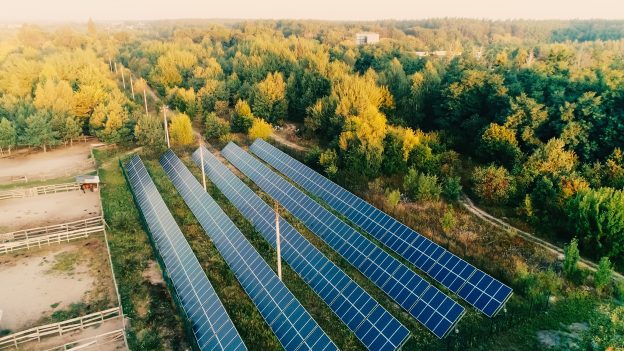The war in Ukraine has amplified Germany’s intention in extricating from the dependency on Russia’s fossil fuels. Initially planning to gradually decommission coal-fired power plants in 2030 and shut down nuclear power plants before the end of 2022, Germany now has a new target in mind, which is to attain 80% of wind or solar power by 2030, before fully relying on renewable energy in 2035, when the expansion for wind and solar capacity would surge by threefold, while the installed capacity for offshore wind power would more than double then. However, an extension to coal-fired power plants’ decommissioning schedule may become necessary before all of the above come to fruition.
Germany has moved up its renewable energy target by 15 years to 2035. The country will experience double the growth in onshore wind power to 110GW, and increase to 30GW in offshore wind power, which is equivalent to the capacity of 10 nuclear power stations. An increase of more than twofold will also be seen from the country’s solar power at 200GW.
Germany is preparing to phase out nuclear power this year by terminating the final three nuclear power stations, before exiting from coal-fired power generation in 2030. The sole dependency on renewable energy without nuclear power and coal-fired power has evidently become a doctrine in the current stage, though many countries are still relying on natural gas as the transitional energy source, which is something Germany cannot afford, since more than half of the country’s natural gas comes from Russia.
Aside from accelerating on the expansion of wind and solar power, the reduction on the dependency of Russia’s natural gas imports and the seeking of alternatives for natural gas have prompted Germany to not only establish liquefied natural gas plans, but also revise its national natural gas reserve act, which asks owners of storage facilities to fill up their tanks by 65% before August, followed by 80% in October, and then 90% in December, so as to respond to energy consumption during wintertime. The country is also going to extend the usage of coal to after 2030. Heiko Maas, Minister of Foreign Affairs, commented that the long-term usage of coal “is the price that we pay for this war.”
With that being said, 50% of coal in Germany comes also comes from Russia, which leaves renewable energy as the only source of power that does not require any sort of dependency on other countries. Christian Lindner, Federal Minister of Finance, commented that warmongers are not reliable partners, and that Germany must overcome its high dependency on Russia’s fossil fuels, where the key lies on a rapid development of renewable energy.
Federal Ministry for Economic Cooperation and Development is still currently drafting the proposed legislation. US-based non-profit think tank Resources for the Future commented that Germany may require liquefied natural gas and other energy sources, such as imports of hydrogen storage and hydroelectricity from Norway through submarine cables, until comprehensive capability in proving wind and solar power under all weathers, as well as effective dispatching of energy sources through battery and demand management strategies. Experts believe that the ambitious targets of Germany will be met with significant challenges.
The extrication from energy dependency on Russia is the issue that impacts the entire Europe. Germany and Italy are the two European countries that rely mostly on Russia’s natural gas, where the latter commented last week that it is about to reopen certain decommissioned coal-fired power plants to help with the imminent energy supply void and lower reliance on Russia. Russia currently occupies 45% of Italy’s natural gas supply that is a sizable increase from 27% a decade ago, whereas coal-fired power generation merely accounts for 6%. Similar to Germany, Italy is also looking to increase its imports of liquefied natural gas from countries such as the US, as well as further elevate the capability of gas storage, and develop renewable energy.
(Cover photo source: Pixabay)







